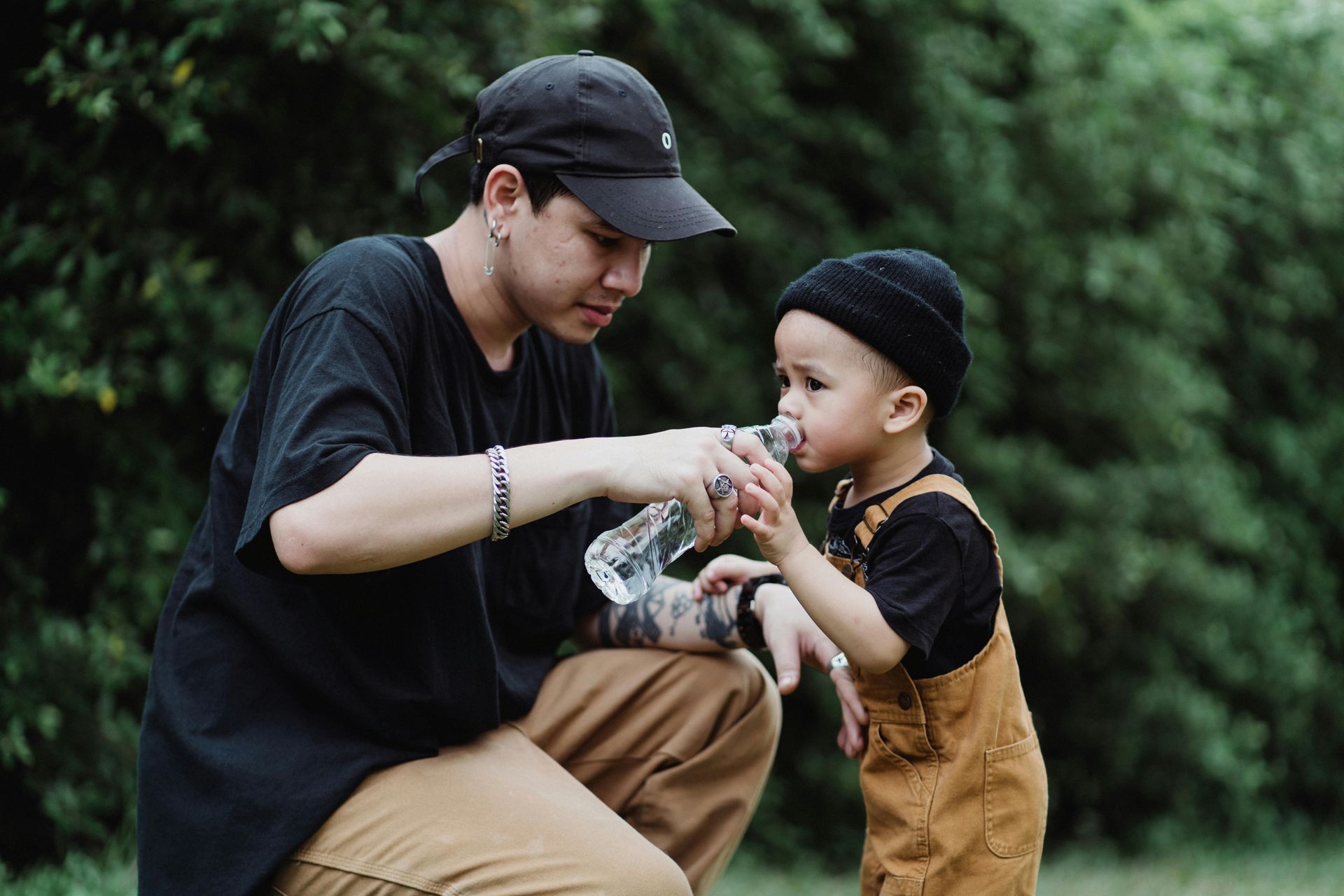Apply for a Green Card as a Victim of Trafficking
Denice Flores • October 24, 2024
The U.S. offers avenues for relief, including the opportunity to adjust status to a lawful permanent resident of the U.S. under specific provisions for trafficking victims.
Here is an overview of the requirements and important considerations to know:
In order to be eligible to apply and become a lawful permanent resident, you must meet the following requirements:
- Be lawfully admitted to the United States as a T-nonimmigrant;
- Continue to hold T nonimmigrant status at the time of applying for a green card;
- Maintain continuous physical presence in the United States. There are two ways to prove continuous presence;
o Continuous physical presence must be maintained for at least 3 years, since the date of being lawfully admitted as a T nonimmigrant
o Or continuous presence can be the time that the trafficking investigation or prosecution takes, whichever period of time is shorter.
- Prove you are a person of good moral character since first being admitted as a T- nonimmigrant and during the entire time your green card application is pending; and
- Meet one of the following:
o Prove you have complied with any reasonable request for assistance in the investigation or prosecution of the acts of trafficking since first being admitted as a T-1 nonimmigrant and until USCIS makes a decision on your green card application; or
All of the requirements must be satisfied to be eligible to apply for adjustment of status as a trafficking victim.o Prove you would suffer extreme hardship involving unusual and severe harm if you were removed from the United States; oro Prove you would suffer extreme hardship involving unusual and severe harm if you were removed from the United States; or
Applying for your green card is a significant step towards reclaiming your life and securing a future in the U.S. If you or someone you know is a trafficking victim seeking to adjust status, contact our office and schedule a consultation with our experienced immigration attorneys.
This blog is not intended to be legal advice and nothing here should be construed as establishing an attorney client relationship. Please schedule a consultation with an immigration attorney before acting on any information read here.
Denice Flores
This Facebook widget is no longer supported.
Similar Posts

Key Changes to T Visa Process (Effective October 23, 2024) U.S. Citizenship and Immigration Services (USCIS) recently updated its policy for T visas, which provide protection and legal status to noncitizen victims of severe human trafficking. This update, effective October 23, 2024, introduces key changes that streamline the application process and broaden access to benefits for trafficking survivors. One of the most impactful updates is the new ability for T visa applicants to receive work authorization while their T visa application is still pending. Immediate Work Authorization Eligibility In a major shift, T visa applicants can now file for and potentially receive work authorization before their T visa application is approved. Through the new “bona fide determination” process, USCIS assesses basic eligibility at the outset. If an application is deemed “bona fide,” the applicant may be granted deferred action and an Employment Authorization Document (EAD), allowing them to work legally in the U.S. while awaiting full T visa approval. This is a critical step forward, as applicants no longer need to wait until their T visa is approved to receive work authorization. Additional Policy Highlights “Any Credible Evidence” Standard The policy emphasizes that applicants can submit any form of credible evidence in support of their case. This approach ensures that survivors, who may lack traditional documentation, still have a fair chance to prove their situation. Victim-Centered and Trauma-Informed Approach The update reinforces a trauma-informed review process, prioritizing the needs and well-being of trafficking victims and making it more compassionate. Physical Presence Requirement Flexibility USCIS now allows certain exceptions to the rule that applicants must remain in the U.S. due to their trafficking situation, providing flexibility for those who may have briefly departed and returned. Clarified Reporting Requirement While applicants generally must report their trafficking to law enforcement with jurisdiction over trafficking cases, exceptions exist for individuals unable to report due to age or trauma. What This Means for Applicants The T visa offers temporary legal status to certain victims of human trafficking, typically allowing them to stay in the U.S. for an initial period of up to four years. With these updates, the T visa program is now more accessible and supportive, helping survivors gain stability and security sooner. Need Help with a T Visa Application? If you or someone you know is a trafficking survivor and may benefit from a T visa, we’re here to help. Contact us today for expert guidance on T visa applications and work authorization, and start your journey to legal protection and stability.

On September 25, 2024, the U.S. Citizenship and Immigration Services (USCIS) recently updated its guidance on the Child Status Protection Act (CSPA) to clarify how an applicant’s CSPA age is calculated when extraordinary circumstances are involved. This update is designed to help Applicants and their families better understand how their eligibility for certain immigration benefits may be impacted by delays or special conditions during the process . The CSPA is a crucial law that helps protect children from "aging out" of the immigration process , meaning turning 21 years old while waiting for family-based immigration petitions to be processed. Normally, once a child turns 21, they may no longer qualify for a green card under certain family visa categories. However, the CSPA allows a special calculation of a child’s age to determine whether they can still be considered a "child" for immigration purposes, even if they have passed the age of 21. USCIS's recent update focuses on two key points: First , it clarifies how extraordinary circumstances may excuse an applicant from the usual requirement to apply for a green card (or "seek to acquire" permanent residency) within one year of their visa becoming available. If extraordinary circumstances, such as medical issues or other unavoidable situations, prevent an applicant from meeting this deadline, they may still qualify for CSPA protection as long as they can demonstrate these circumstances. Second , the guidance outlines how to calculate the applicant’s CSPA age in cases where these extraordinary circumstances apply . If an immigrant visa was available for a continuous one-year period, the CSPA age is calculated from the date the visa first became available. However, if the visa became available and then unavailable before the applicant could apply, the CSPA age calculation may still use the date the visa first became available—if the applicant can show they were unable to apply due to extraordinary circumstances. This update addresses an issue that was not previously covered in detail by USCIS policy. Before this clarification, it was unclear how the CSPA age would be calculated for noncitizens who had extraordinary reasons for not applying for a green card during the time their visa was available. By providing this updated guidance, USCIS aims to ensure that these cases are handled consistently and fairly. In conclusion, this recent USCIS update offers clearer guidance on how extraordinary circumstances affect CSPA age calculation. If you believe your family might benefit from this update, please reach out to one of our highly experienced immigration attorneys, who can help you understand how these changes apply to your situation. For more detailed information, you can visit the USCISPolicyManual or review the official USCISannouncement .

The T visa is a nonimmigrant visa designed specifically for victims of severe forms of human trafficking. It provides recipients with temporary legal status in the United States, allowing them to live and work in the country for up to four years. This visa not only ensures their safety but also grants access to essential public benefits such as housing assistance and medical care. In the fight against human trafficking, the T visa stands as a crucial tool, offering hope and legal protection to victims who have endured unspeakable hardships. Established under the Victims of Trafficking and Violence Protection Act of 2000 (VTVPA), the T visa aims to shield individuals trafficked into the United States from further exploitation while empowering them to assist law enforcement in prosecuting their traffickers. To establish eligibility for a T visa, the applicant must demonstrate that they: 1. have been a victim of a severe form of trafficking in persons; 2. are physically present in the United States, American Samoa, or at a U.S. port of entry on account of such trafficking; 3. have complied with any reasonable request for assistance in a federal, state, or local investigation or prosecution into acts of trafficking or the investigation of a crime where acts of trafficking are at least one central reason for the commission of that crime, except when the applicant was under 18 years of age at the time of victimization or is unable to cooperate with a request due to physical or psychological trauma; 4. would suffer extreme hardship involving unusual and severe harm upon removal from the United States; and 5. are admissible to the United States or qualify for a waiver of any applicable grounds of inadmissibility. The 2021 revisions to the USCIS Policy Manual, particularly in Volume 3, Part B – Victims of Trafficking, have clarified the broad definition of trafficking. This has facilitated more successful T visa cases without requests for evidence or the need for litigation. Application Process Applying for a T visa involves submitting a comprehensive application package to the United States Citizenship and Immigration Services (USCIS). The core of the application is the Form I-914, which includes: Detailed personal information and history of trafficking victimization. Supporting documentation such as police reports, medical records, and witness affidavits. Evidence of cooperation with law enforcement. Proof of extreme hardship if deported. Once USCIS receives the application, they conduct a thorough review to determine eligibility for the T visa. Upon approval, T visa holders receive temporary legal status in the U.S. for up to four years. During this period, they can rebuild their lives with access to crucial resources and the ability to work legally. Importantly, after three years of continued presence in the U.S. under T visa status, individuals may apply to adjust their status to become lawful permanent residents (green card holders). Navigating the complexities of the T visa application process requires legal expertise and compassionate support. At Santos Lloyd, our dedicated team of attorneys specializes in immigration law, with a focus on assisting victims of human trafficking. If you believe you have been a victim of human trafficking or would like a comprehensive screening, please contact our office – we are eager to help you!

On June 18, 2024, President Biden announced a series of immigration actions using the authority granted to him by our existing immigration laws. These actions will help certain undocumented individuals in the United States, including: Spouses and children of U.S. citizens who have been living in the United States for at least 10 years. You may be eligible to apply for your green card without leaving the United States, if, as of June 17, 2024: ○ You are in the United States after entering without permission; ○ You have lived in the United States for at least 10 years and have never left; ○ You are legally married to a U.S. citizen or have a qualifying stepchild relationship with a U.S. citizen; and ○ You do not have certain criminal history or pose a threat to national security or public safety. If you meet these criteria, the government MAY grant you parole-in-place. Parole would be granted for a one-time period of three years. You may also be eligible for employment authorization for up to three years. If you are granted parole y ou may apply for your green card within three years of approval. Eligibility is determined on a case-by-case basis. College-educated DACA recipients and Dreamers who are qualified for nonimmigrant status, such as an H-1B specialty occupation visa. You may be eligible to apply for a temporary visa more easily, if: ○ You have a degree from an accredited U.S. institution of higher education; and ○ You have an offer of employment from a U.S. employer in a field related to your degree. Please note that these programs have NOT YET begun. Details on how to apply are expected to be released by the end of the summer through a Federal Register notice. This means: You cannot submit an application at this time. An early-filed application will be rejected . You should not pay anyone a fee associated with filing an application at this time. Be patient and take the time to find the right help. The wrong advice could harm your chances of staying in the United States, getting lawful status, or becoming a U.S. citizen. Don't be fooled by notarios and other consultants who promise immediate results or special solutions in order to steal your money. Many unscrupulous individuals will cost more than licensed attorneys! If you are unsure if someone is qualified to help, ask for proof of their credentials and retain a copy of that evidence. This program could also be legally challenged, which could impact its implementation. This makes it even more important to have a qualified, knowledgeable attorney. USE AILA’s Find an Immigration Lawyer Search, ailalawyer.org , to find a licensed immigration attorney in good standing. Or find an accredited representative at: https://www.justice.gov/eoir/find-legal-representation . FONT: https://www.aila.org/library/information-and-guidance-on-new-actions-to-promote-family-unity

U.S. Citizenship and Immigration Services (USCIS) has announced a major change to the H-1B cap selection process. Under a final rule issued on December 29, 2025, USCIS will replace the long-standing random H-1B lottery with a wage-weighted selection system that favors higher-paid and more complex positions. The rule is scheduled to take effect on February 27, 2026 , just ahead of the fiscal year 2027 H-1B cap registration season, unless delayed by legal challenges. If implemented, USCIS is expected to release additional guidance explaining how employers must submit registrations under the revised process. This change marks one of the most significant reforms to the H-1B program in recent years. Up until 2025, all registrations were treated equally once the annual cap was reached. Under the new system, selection odds will be tied to wage levels based on the U.S. Department of Labor’s Occupational Employment and Wage Statistics data. All H-1B registrations will still be placed into a single selection pool, but registrations tied to higher wage levels will receive multiple entries into that pool, increasing their likelihood of selection. Lower wage levels will receive fewer entries, making selection less likely but not impossible. H-1B wage levels are not determined solely by salary. Each wage level reflects the complexity of the job, the level of responsibility involved, and the education and experience required . Entry-level positions involving routine duties and close supervision are generally classified at the lowest wage level, while positions requiring independent judgment, advanced skills, and significant responsibility fall into higher wage levels. The highest wage level is reserved for roles that involve expert knowledge, strategic decision-making, and substantial leadership or technical authority. USCIS is expected to closely scrutinize selected petitions to ensure that the wage level claimed during registration is supported by the job duties and salary offered in the petition. Any discrepancies between the registration and the petition may result in requests for evidence, denials, or enforcement action. With the elimination of the purely random lottery, employers should begin preparing early by carefully evaluating job descriptions, wage levels, and overall H-1B strategy. Accurate classification and thoughtful planning will be essential under this new wage-based selection system. If you are an employer considering H-1B sponsorship, or a foreign professional wondering whether your position may qualify under the new wage-based system, consulting with experienced immigration counsel is more important than ever. Santos Lloyd Law is actively advising clients on H-1B cap registrations and strategy under the new rules. To discuss your options or determine whether you may qualify, contact our office to schedule a consultation.

During the recent administration there has been an increase in issuance of Requests for Evidence for EB-1A petitions for those of Extraordinary Ability. A Request for Evidence is a request that is made by USCIS that should explain how the evidence is deficient in proving the criteria argued and what additional evidence needs to be provided by the applicant to meet the criteria. EB-1A petitions are already normally subject to higher scrutiny because their approval is the first step needed to apply for Lawful Permanent Residence or a green card. USCIS normally requires not just evidence but that the evidence be provided with context and information to show why it matters in a particular field. For example, if you were providing evidence of your membership in an organization that requires outstanding achievements of its members, just providing evidence of the membership is not enough. You must explain what that membership is and provide background information on the organization granting the membership. You also need to provide evidence on the criteria that is used to select the members, information on those who select the members to show that they are recognized experts, other documentation such as articles about the membership organization to show its importance, and any other relevant evidence and background information to show that the criteria is met. A request for evidence being issued prior to the current administration was not uncommon, but in the current climate it is more surprising to not receive a request for evidence for this type of case. It is important to remember that a request for evidence is not a denial. Depending on the validity of the information in the request and the substance some Requests for Evidence can be overcome, and the case be approved. It is important to carefully review the request and note if there are any errors in the content and application of the regulations by USCIS. If you have an attorney, you should work with them and make sure that you provide any evidence you think may be helpful. Although there is a deadline by which a response must be submitted, attention to detail and patience will go a long way when dealing with having to respond to a request for evidence. If you believe you may qualify for this type of visa, please feel free to contact our office.



